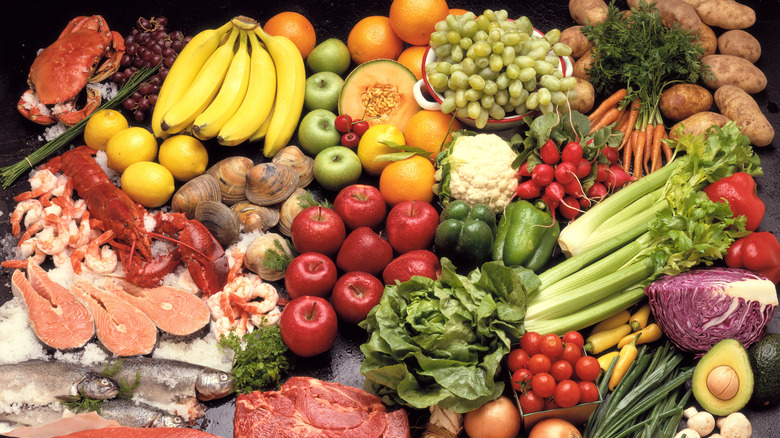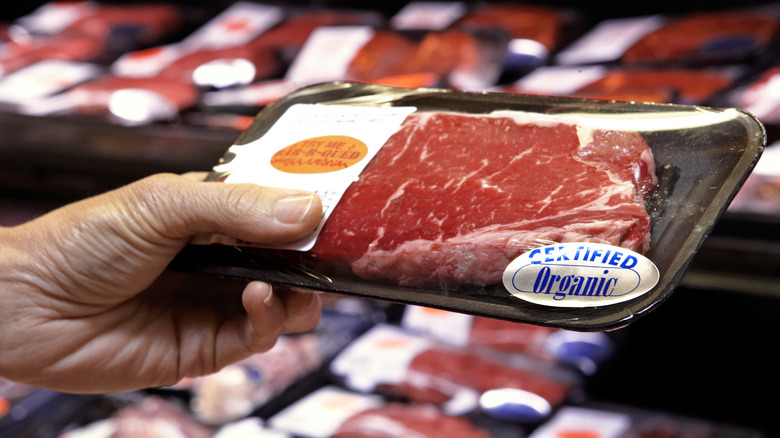How Sustainatarians And Reducetarians Differ From Other Climate Diets
Every year, new words cycle faster and faster through the pipeline from Twitter to Urban Dictionary to Merriam-Webster, and this lexicographical flow is at its most frenetic when it comes to talking about food. The process for new identity words around eating habits used to take more time. The term "vegetarian" dates back to 1839, but it took another century to get to "vegan" in 1944 and another five decades to reach "pescatarian" in 1993 (per Merriam-Webster).
Recently, however, these words have been coming at a breakneck speed. There are flexitarians, social omnivores, reducetarians, sustainatarians, climatarians, and dozens of other terms that feel both ultra-specific and vague at the same time (per Vox). While only 7% of Americans between the ages of 18 and 39 identify as vegetarian (via Statista), many more have decreased their meat intake without going whole hog, so to speak. According to Gallup, nearly a quarter of Americans have cut back on meat in recent years, primarily by eating smaller portions of pork or chicken rather than replacing them altogether.
Which could mean that a lot of these people do or will identify with one of the terms above. But what exactly do they mean, and are they all referring to nearly the same thing?
Omnivores with an environmental impact
Many of the variations on vegetarianism are driven by climate concerns. A reducetarian is motivated by health consciousness and animal welfare, but also by the climatic effects of food consumption (via the Reducetarian Foundation). "'Reducetarian' is an umbrella term. But it primarily describes someone who eats way too many animal products and made a decision to cut back," explains leader of the movement, Brian Kateman. According to Time, reducetarianism is an ideology that allows people the freedom to reduce their meat intake without being shamed for being "lazy vegetarians." The Times explains, this mentality is so common that many people fall into this category without even realizing it.
The climatarian or climavore diets take this to a new level, by explicitly prioritizing "food choices based on climate impacts, practicing climate-conscious eating based on a series of dietary trade-offs intended to benefit the planet," according to a report by supermarket chain Fresh Market (via Axios). This could mean cutting out high-impact foods like beef, almonds, and even coffee (per Global Citizen). Sustainatarians, on the other hand, orient their diet towards reducing food waste as well as reducing consumption of animal products, according to Vox. Sustainatarians might eat homegrown vegetables, or even hunt overpopulated animals for food using humane and sustainable methods rather than buy factory-farmed meat from the grocery store (per Bad Yogi). According to Sustainable Psyche, this diet considers packaging and transportation of food as well as the environmental impact of production and harvesting.

